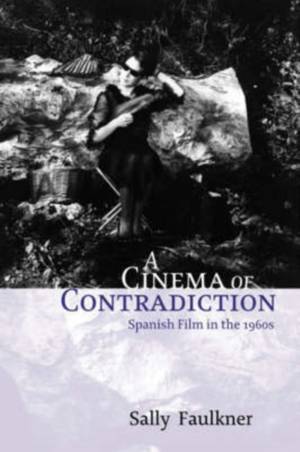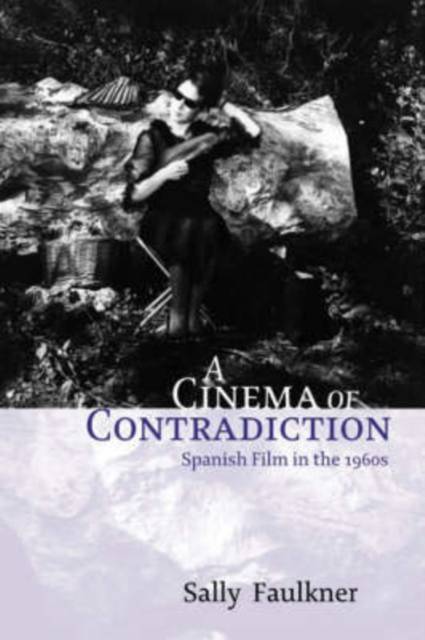
- Retrait gratuit dans votre magasin Club
- 7.000.000 titres dans notre catalogue
- Payer en toute sécurité
- Toujours un magasin près de chez vous
- Retrait gratuit dans votre magasin Club
- 7.000.0000 titres dans notre catalogue
- Payer en toute sécurité
- Toujours un magasin près de chez vous
148,45 €
+ 296 points
Description
A key decade in world cinema, the 1960s was also a crucial era of change in Spain. A Cinema of Contradiction, the first book to focus in depth on this period in Spain, analyses six films that reflect and interpret these transformations. The coexistence of traditional and modern values and the timid acceptance of limited change by Franco's authoritarian regime are symptoms of the uneven modernity that characterises the period. Contradiction - the unavoidable effect of that unevenness - is the conceptual terrain explored by these six filmmakers. One of the most significant movements of Spanish film history, the 'New Spanish Cinema' art films explore contradictions in their subject matter, yet are themselves the contradictory products of the state's protection and promotion of films that were ideologically opposed to it. A Cinema of Contradiction argues for a new reading of the movement as a compromised yet nonetheless effective cinema of critique. It also demonstrates the possible contestatory value of popular films of the era, suggesting that they may similarly explore contradictions. This book therefore reveals the overlaps between art and popular film in the period, and argues that we should see these as complementary rather than opposing areas of cinematic activity in Spain.Features* The first book-length study of Spanish cinema of the 1960s in English* Includes case studies of six key films: La gran familia (The Great Family), La ciudad no es para mí (The City's Not For Me), Los farsantes (Frauds), La tía Tula (Aunt Tula), Nueve cartas a Berta (Nine Letters to Berta) and La caza (The Hunt)* Considers Spanish popular cinema of the period* Offers a detailed analysis of one of the key artistic movements of the Franco dictatorship in Spain, the 'Nuevo Cine Español' (New Spanish Cinema).
Spécifications
Parties prenantes
- Auteur(s) :
- Editeur:
Contenu
- Nombre de pages :
- 208
- Langue:
- Anglais
Caractéristiques
- EAN:
- 9780748621606
- Date de parution :
- 22-02-06
- Format:
- Livre relié
- Format numérique:
- Genaaid
- Dimensions :
- 165 mm x 242 mm
- Poids :
- 494 g

Les avis
Nous publions uniquement les avis qui respectent les conditions requises. Consultez nos conditions pour les avis.






